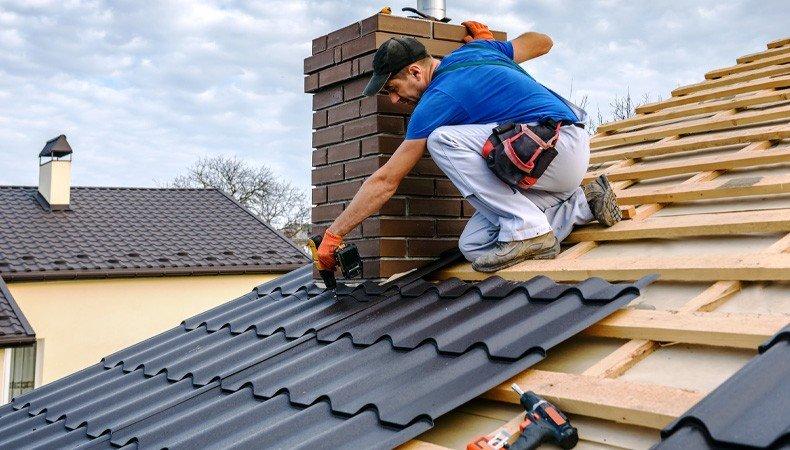When it comes to protecting our homes, homeowners insurance is a critical safety net. It shields us from unexpected disasters, offering financial coverage for damages and losses. However, many homeowners wonder how their insurance premiums might change after a roof replacement. In this article, we will explore the factors that influence insurance rate adjustments and provide you with a comprehensive understanding of how much homeowners insurance can go up after a roof replacement.

Factors That Affect Homeowners Insurance Premiums
Before we delve into the specifics of roof replacements, it’s essential to understand the key factors that can influence your homeowners insurance premiums. Insurance providers take various elements into account when calculating your rates. These factors can include your location, the age and condition of your home, your claims history, and the materials used in your home. Your roof is one of the most critical components.
- Roof Material and Quality: Insurance companies consider the type of roofing material and its quality when assessing your premiums. Roofs made of durable and impact-resistant materials, such as metal or tile, may result in lower premiums due to their ability to withstand adverse weather conditions.
- Roof Age: The age of your roof is a crucial factor. Older roofs are more susceptible to damage, which can lead to higher insurance premiums. An aging roof may be less efficient at protecting your home from leaks and other weather-related issues.
- Local Climate: The climate in your area plays a significant role in determining your insurance premiums. Homes in regions prone to severe weather, such as hurricanes or hailstorms, might face higher insurance costs.
- Claims History: Your insurance claims history is another important consideration. Frequent claims can lead to premium increases, while a history of minimal or no claims may result in lower costs.
Now that we understand these factors, let’s explore how a roof replacement can impact your homeowners insurance rates.
The Impact of Roof Replacement on Homeowners Insurance
- Roof Material Upgrade: One of the most common reasons homeowners choose to replace their roofs is to upgrade to more durable and resilient materials. If your current roof is made of less sturdy materials like asphalt shingles and you opt for a stronger option like metal or clay tiles, your insurance provider may offer you a discount. These materials can reduce the risk of damage and claims, resulting in lower premiums.
- Roof Age: An aging roof can be a liability when it comes to insurance costs. If your roof is nearing the end of its lifespan, replacing it with a new one can lead to insurance savings. A new roof is less likely to develop leaks or sustain damage during storms, which can decrease the chances of claims and subsequently reduce premiums.
- Improved Weather Resistance: Upgrading your roof can enhance your home’s resilience to adverse weather conditions. Insurance companies appreciate this proactive approach to risk mitigation. A roof replacement that improves your home’s weather resistance may result in discounts or more favorable premium rates.
- Claims Prevention: A new roof can help prevent potential insurance claims. With a more durable and reliable roof, you can reduce the likelihood of having to file claims for roof-related damage. Fewer claims on your record can translate to lower premiums.
Determining the Exact Premium Increase
The exact premium increase after a roof replacement can vary significantly based on several factors, such as the insurer, location, the type of new roof, and the previous condition of your old roof. It is advisable to contact your insurance provider to get a personalized estimate. They can assess your specific situation and provide accurate information on how your insurance rates will change.
Conclusion:
In conclusion, the impact of homeowners insurance premium increases after a roof replacement can be positive or negative, depending on various factors. Upgrading to a new, durable roof can lead to discounts and lower premiums, as it reduces the risk of damage and claims. On the other hand, if you neglect roof maintenance and your current roof is in poor condition, insurance companies may increase your premiums due to the higher risk of claims. To get a clear picture of how much your homeowners insurance will go up after a roof replacement, it’s best to consult with your insurance provider. In any case, investing in a new roof not only enhances your home’s aesthetics and functionality but also provides long-term financial benefits by potentially reducing your insurance costs.



Leave a Reply